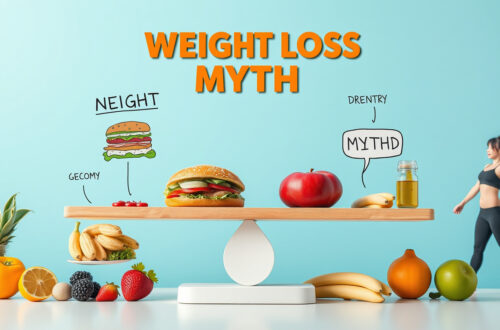
Hey there! Let’s chat about sleep and weight loss. We sleep about a third of our lives. Sleep shows many links with our health and goals. Grab a cup of herbal tea, get comfy, and let’s dig in!
Why Sleep Matters More Than You Think
When you skip sleep, you wake up tired and irritable. Your hunger grows, too. A rough night makes your body lose balance. Your hunger signal, ghrelin, grows. Your fullness signal, leptin, drops. You feel more hungry and less full. This gap can add weight if you do not rest enough.
The Science of Sleep and Weight Management
Research shows that less than seven hours of sleep can hurt your body. When sleep is cut short, your mind does not rest and your body cannot fix itself. Your appetite shifts. Your stress key, cortisol, may increase. More cortisol can add extra weight near the belly. A good night’s sleep helps keep these signals close and steady.
How Much Sleep Do You Really Need?
Experts suggest sleep lasts seven to nine hours for most adults. Sleep is not just about time in bed; it is about reaching deep states. Sleep comes in cycles of about 90 minutes. A night with several cycles works best. Try to build a routine that calls for calm. Dim lights, quiet screens, and slow thoughts ready you for a deep sleep.
Real-Life Applications: Tips for Better Sleep
-
Set a Sleep Schedule
Try to sleep and wake at the same time each day. This plan helps your body know when to rest. -
Limit Caffeine and Sugar
That afternoon coffee might look nice, but it can stop good sleep. Swap it for an herbal drink after lunch. -
Create a Cozy Environment
Your room should feel safe. Soft bedding, cool air, and low noise help you fall quickly. -
Mindfulness Practices
Practice deep breathing or calm meditation before bed. These acts let your day fade and help you relax. -
Limit Naps
A short nap can help, but long daytime sleep may disturb your night. Keep them brief.
Mindfulness and Sleep: A Winning Combination
Calm breathing and slow thoughts help your sleep and weight. A quiet mind can reduce stress and build good nightly habits. Ten minutes of breath focus can work a lot. When you feel calm, you may choose better food during the day. A good night leads to a better day. A better day leads to a sound night.
Conclusion: The Path to a Happier You
Sleep does more than rest your body. It shapes how you handle your weight and health. Next time you think to cut sleep short, recall its role in your life. Give yourself a calm night with an early bedtime. Your body will thank you, and you step near a better health goal. Sleep is not extra time—it is a key part of well-being and weight control.
Now that you have this guide, are you set to catch some real Z’s? Sweet dreams and a steady path forward!





